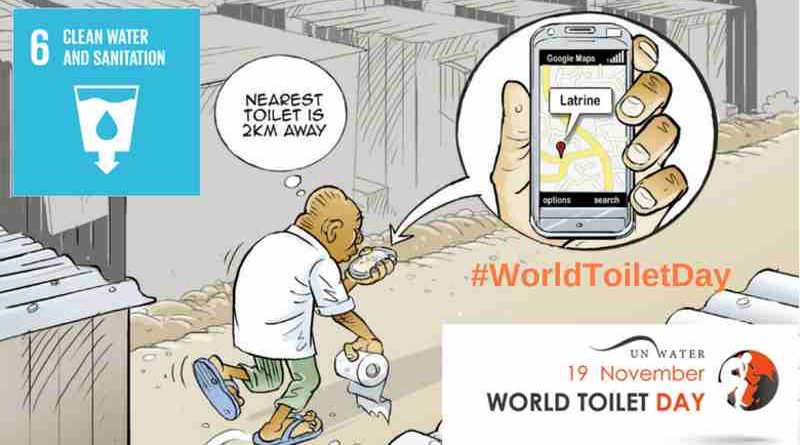2.4 Billion People Lack Access to Toilets: World Bank

According to the World Bank Group, 2.4 billion people in the world still lack access to sanitation services, such as toilets or latrines. The Sustainable Development Goals include a target to achieve universal access to adequate and equitable sanitation and hygiene by 2030.
November 19 was World Toilet Day, a day to raise awareness and inspire action to tackle the global sanitation challenge.
Seven out of 10 people who still lack access to safe, hygienic toilet facilities live in rural areas, mostly in Sub-Saharan Africa and South Asia.
[ Delhi Is a Wakeup Call for World on Air Pollution: UNICEF ]
However, according to the World Bank, more than 850 million urban residents also lack access to sanitation. The increasingly rapid pace of urbanization, combined with evidence showing great health impacts of poor sanitation in dense urban areas, makes this a key barrier to sustainable development.
This has serious public health impacts, as well as long-term impacts on human capital. Just last week estimates were released suggesting that sanitation is the second leading cause of child stunting worldwide.
Sanitation was one of the most off-track Millennium Development Goals (MDGs) globally. The world missed the MDG target for sanitation by almost 700 million people.
The Sustainable Development Goals (SDGs), launched in 2015, include a target (SDG 6.2) to achieve access to adequate and equitable sanitation and hygiene for all and end open defecation by 2030, paying special attention to the needs of women and girls and those in vulnerable situations.
Photo courtesy: World Bank
💛 Support Independent Journalism
If you find RMN News useful, please consider supporting us.




